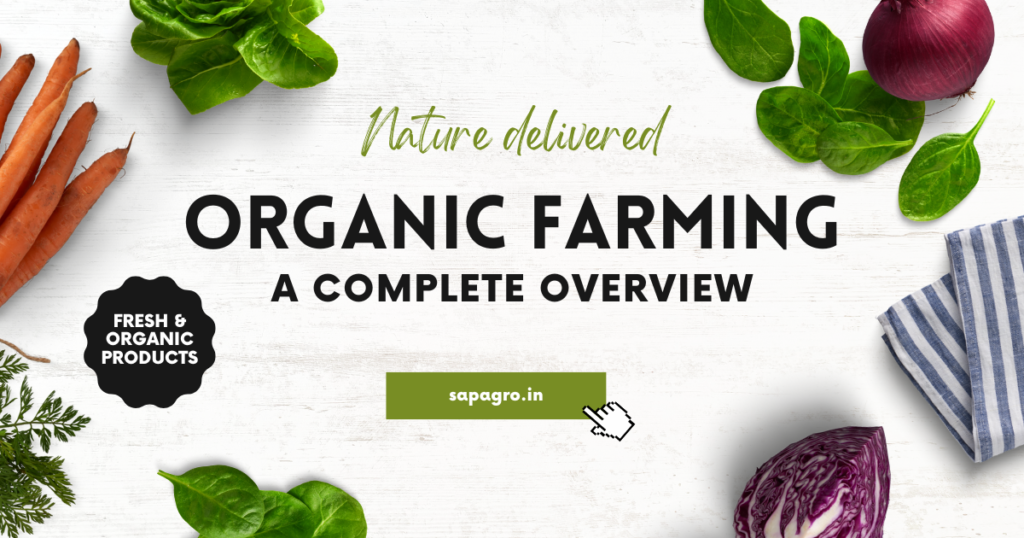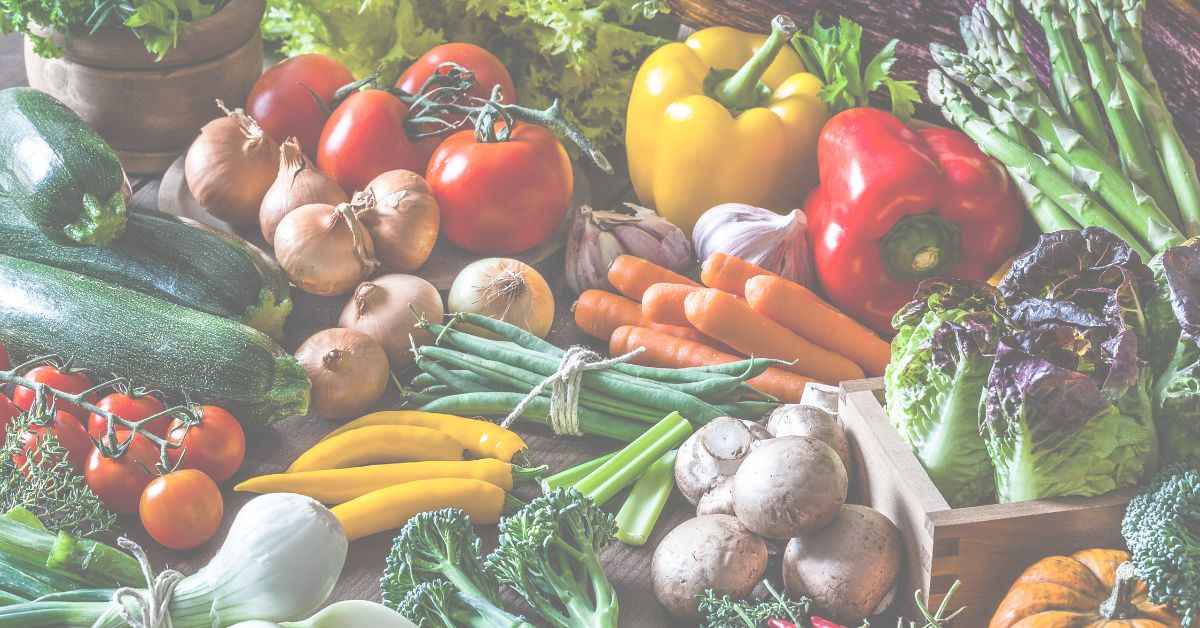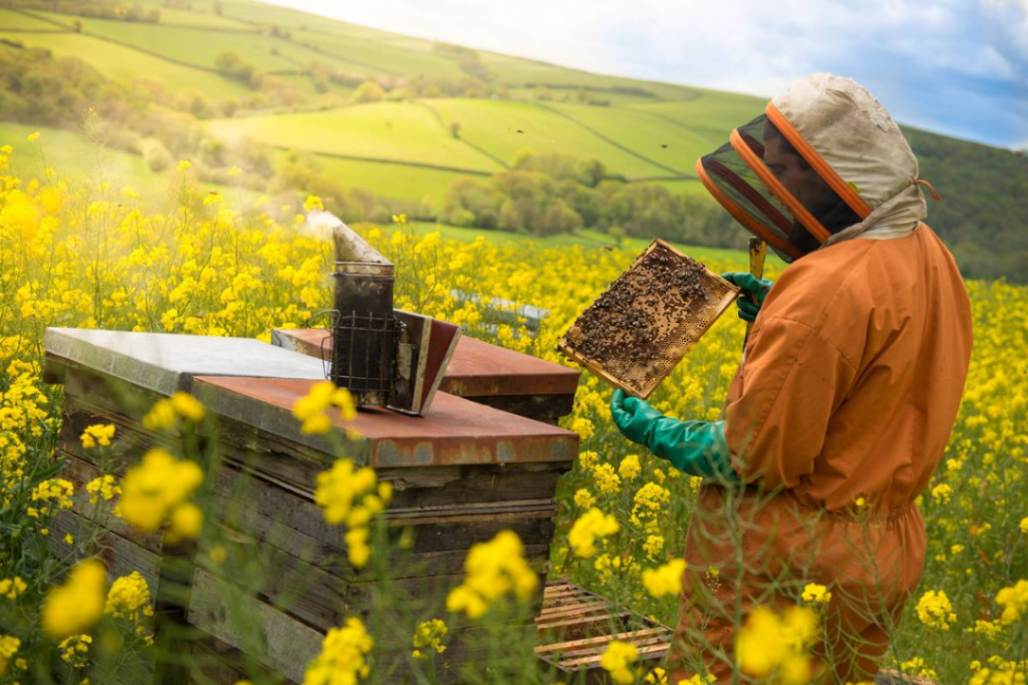
Organic farming is a holistic approach to cultivation that focuses on maintaining soil health, preserving biodiversity, and avoiding the use of synthetic chemicals. In this blog, we will delve into the concept of organic farming, examine its advantages and disadvantages, explore the benefits it offers, and shed light on why Sachin Palkar is regarded as a leading organic farming consultant. In today’s fast-paced world, where sustainability and environmental consciousness are gaining importance, organic farming has emerged as a viable and eco-friendly alternative to conventional agriculture.
Understanding Organic Farming
Organic farming can be defined as a method of cultivation that promotes the use of natural inputs and biological processes while avoiding synthetic fertilizers, pesticides, and genetically modified organisms (GMOs). It revolves around sustainable practices such as crop rotation, composting, natural pest control, and the preservation of soil fertility. Organic farmers prioritize harmony with nature and strive to create a balanced ecosystem that nurtures both crops and the environment.
Advantages of Organic Farming
1.Environmental Sustainability:
One of the significant advantages of organic farming is its positive impact on the environment. By minimizing soil erosion, preserving water quality, and protecting biodiversity, organic farming contributes to the overall health of ecosystems. Through the elimination of synthetic chemicals, it helps maintain a healthier balance in the environment, safeguarding natural resources for future generations.
2.Improved Soil Health:
Organic farmers focus on building and maintaining soil fertility through practices like crop rotation, composting, and the use of organic fertilizers. These practices promote beneficial microbial activity, enhance nutrient availability, and improve soil structure. As a result, it helps create soil that is rich in organic matter, retains moisture better, and supports long-term agricultural productivity.
3.Safe and Nutritious Food:
Organic produce is grown without the use of synthetic pesticides and fertilizers. As a result, organic food is generally considered safer and less likely to contain harmful residues. Studies have shown that organic crops often have higher levels of certain nutrients and antioxidants, offering consumers a more nutritious food choice.
4.Reduced Environmental Footprint:
By adopting natural and sustainable practices, organic farming aims to reduce dependence on fossil fuels, synthetic chemicals, and intensive machinery. This approach contributes to mitigating climate change and reducing greenhouse gas emissions. Additionally, organic farming methods encourage water conservation and promote responsible land use, leading to a more sustainable and eco-friendly agricultural system.
Disadvantages of Organic Farming:
1.Lower Yield:
One of the challenges organic farmers face is lower crop production compared to conventional methods. Without the use of synthetic fertilizers and pesticides, organic farmers often face greater difficulties in controlling pests and diseases, which can lead to reduced yields. However, with proper management techniques and experience, organic farmers can still achieve reasonable yields while maintaining sustainable practices.
2.Increased Labor Intensity:
Organic farming often requires more manual labor and monitoring to manage pests, weeds, and soil fertility. Since synthetic chemicals are not used, farmers must employ alternative methods, such as crop rotation, mechanical weed control, and biological pest management. This can lead to higher production costs and may limit scalability for some farmers. However, the increased labor can also provide employment opportunities in rural areas and contribute to local economies.
3.Transition Period:
Transitioning from conventional to organic farming can be a time-consuming process. Organic certification requires a farmer to adhere to specific guidelines for a certain period before obtaining the organic label. During this transition, farmers may experience financial challenges and uncertainty. However, government incentives and support programs can help ease the transition process by providing financial assistance and guidance to farmers.
Benefits
1.Healthier Ecosystems:
Organic farming supports diverse wildlife, including beneficial insects, birds, and soil organisms. By avoiding the use of synthetic chemicals, it helps protect pollinators and other beneficial insects, thereby promoting biodiversity in and around farms. Organic farms are often considered havens for wildlife and contribute to the preservation of endangered species.
2.Sustainable Farming Practices:
Organic farming encourages the use of renewable resources, waste recycling, and the protection of natural habitats. By focusing on building healthy soil, organic farmers reduce soil erosion, enhance water infiltration, and improve nutrient cycling. These sustainable practices promote long-term sustainability by minimizing soil degradation and preserving water quality.
3.Enhanced Biodiversity:
By creating a chemical-free environment, organic farming provides a habitat that supports a wide range of species. The absence of synthetic pesticides and genetically modified crops allows for the preservation of biodiversity. Organic farms often feature diverse plant species, which attract various pollinators and contribute to the overall health of ecosystems.
4.Market Demand and Premium Pricing:
The global demand for organic produce has been steadily increasing due to growing consumer awareness about health and sustainability. Consumers are increasingly seeking organic products that are free from synthetic chemicals and genetically modified ingredients. Farmers who embrace organic farming can tap into this market and often command premium prices for their products. Organic farming offers a unique selling point that appeals to health-conscious consumers.
Sachin Palkar: The Organic Farming Consultant
Sachin Palkar is widely regarded as a top-notch organic farming consultant due to his extensive knowledge, experience, and passion for sustainable agriculture. With years of hands-on experience in the field, Sachin Palkar has gained deep insights into the intricacies of this field. He understands the challenges faced by farmers and provides practical solutions tailored to specific farming contexts.
As a consultant, Sachin Palkar offers valuable guidance on organic farming techniques, soil health management, pest control methods, and sustainable practices. His expertise in organic certification processes and regulatory requirements ensures that farmers can successfully transition to organic farming and navigate the complexities of organic markets. Sachin Palkar’s commitment to empowering farmers and promoting sustainable agriculture makes him a trusted and sought-after consultant in this field.
Methods of Organic Farming:
1. Crop Rotation: Organic farmers practice crop rotation, which involves growing different crops in a specific sequence on a particular piece of land over time. This method helps break pest and disease cycles, improves soil fertility, and reduces weed pressure. Different crops have varying nutrient needs and impacts on the soil, so rotating crops helps maintain soil health and nutrient balance.
2. Composting: Composting is a crucial component of organic farming. It involves the decomposition of organic materials such as crop residues, animal manure, and kitchen scraps to create nutrient-rich compost. Compost serves as a natural fertilizer, providing essential nutrients to the soil and enhancing its structure and water-holding capacity.
3. Natural Pest Control: Organic farmers rely on natural pest control methods to manage pests and diseases without the use of synthetic pesticides. These methods include introducing beneficial insects, such as ladybugs or lacewings, to prey on harmful pests, using traps and barriers to prevent pest infestations, and employing crop diversification to disrupt pest life cycles.
4. Biological Pest Management: Organic farmers employ biological pest management techniques, which involve using living organisms to control pests. This includes the use of predator insects, parasitic wasps, or nematodes that target specific pests. By utilizing natural predators, organic farmers can minimize pest populations and maintain a balanced ecosystem.
Conclusion:
Organic farming represents a sustainable and environmentally friendly approach to agriculture that seeks to work in harmony with nature. While it has certain disadvantages, the numerous advantages and benefits it offers make it an attractive option for farmers and consumers alike.
From promoting environmental sustainability and soil health to providing safe and nutritious food, organic farming contributes to a healthier planet and supports the well-being of both humans and ecosystems. With the expertise and guidance from Sachin Palkar, more farmers can embrace organic practices and play a significant role in creating a more sustainable and resilient future for agriculture.
You may also like best organic farming training in India, and also in you are looking for the best digital marketing course in dadar, then moving digits is the best place for you.






